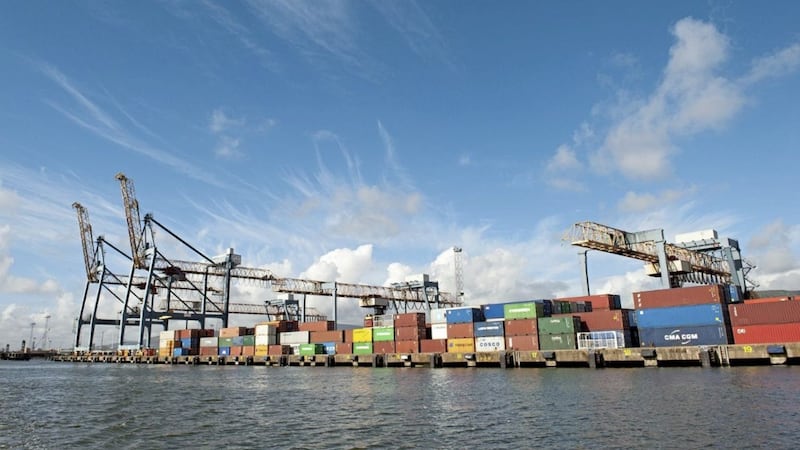THE difference between a border and a sea border is like the difference between a deal and a draft deal - it is an obstacle aggravated by semantics.
If only the term 'sea border' had never been coined. What most models of it envisage should correctly be termed administration of the land border at ports and airports.
While this hardly trips off the tongue, it is not difficult to picture. Nobody had any problem understanding models of a hard border that pushed goods inspections back 20 or 30 miles to Banbridge or Lisburn - in fact, unionists seemed delighted.
Yet push inspections back a little further to Belfast and Aldergrove and apparently it breaks up the United Kingdom.
Confusion arises from believing internal UK shipments would face the same hurdles as goods bound in or out of the UK.
The first task of a sea border would be distinguishing between these goods. There would, in effect, be 'customs' and 'nothing to declare' lanes for freight at ports and airports, with only non-UK shipments having to clear customs.
Administration of both lanes would involve paperwork, which is where technological solutions come in.
The extent to which shipping paperwork is already computerised and standardised seems under-appreciated in the Brexit debate. Technology has also been over-conflated with enforcement.
Of course paperwork does not ensure compliance - that is a separate problem of law enforcement, involving the usual smuggling suspects. Most companies, especially those shipping large amounts of goods, are scrupulously law-abiding.
Enforcement will still require inspections. A 2017 report by Ireland's Revenue Commissioners said the EU would be satisfied with perhaps as few as one lorry in 200 having their contents visually checked.
There would also need to be follow-up inspections of goods at their final destination, to ensure they had ended up in the correct jurisdiction.
Another sea border proposal last year, by Belgian tax officials, said vehicle stops should be mounted at random locations. The Revenue Commissioners have plans to buy mobile inspection equipment.
You might object to this as an expensive rigmarole but you cannot object to it as the manifestation of a sea border, because exactly the same rigmarole would be necessary under all but the hardest model of a land border.
An open border, soft border, Banbridge or Lisburn border would all need onward checks of vehicles and goods at final destinations.
To complete the picture, the sea border is the land border but the actual border is everywhere.
This is how the movement of people works - you cannot be asked for your passport when crossing the Irish Sea but you can be asked for it when renting a house, starting a job, opening a bank account or registering with a doctor. Ireland's new Public Services Card strengthens the same approach.
In its draft withdrawal agreement last week, the European Commission proposed all-Ireland customs union membership in the event of a hard Brexit, then failed to clarify if this would avoid tariffs and quotas on internal UK trade.
Although that commitment was in last December's joint UK-EU agreement, the Commission said it will be purely a UK matter.
This was a negotiating scare tactic - more semantics about a deal or a draft deal.
However, there would be no need for internal UK customs if the sea border was properly enforced, while an all-Ireland customs union membership would greatly simplify internal inspections.
Much of the concern about a hard border is the provocative presence of any physical infrastructure. The infrastructure for a sea border is already in place, in principle if not in scale.
Northern Ireland's ports and airports already handle non-EU shipments and the restrictions on agrifood between Britain and Ireland required by EU regulations.
The invisibility of the Port of Belfast, where most of this occurs, is a fortunate psychological phenomenon.
In a city where every square inch has been fought over for a century, one-fifth of the land - the Belfast Harbour Estate - is a blank spot on most mental maps.
Is anyone, unionist or nationalist, going to be enraged by the harbour fences, the harbour customs posts or the Harbour Police? As everyone seems oblivious to them now, it seems unlikely - which is worth pointing out.
Because what is carefully not being said by Dublin or Brussels is that the Republic would need an identical system for goods to and from the north.
The real problem with a sea border is that it has to go all the way around.
newton@irishnews.com








